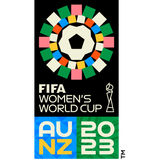
Spain players arrive at training camp despite objecting to call-up
In the latest twist to the Spanish soccer crisis, the country's World Cup-winning players started reporting to training camp on Tuesday despite not wanting to be called up for the national team while fighting for changes in the soccer federation.
Local media showed some of the players arriving at a hotel in Madrid where they briefly gathered with staff before heading to Valencia — a day after new coach Montse Tomé ignored their decision not to play until their demands for reform at the federation were met.
The players had said in a statement on Monday that they were caught by surprise by the call-up and did not plan to end their boycott, but those who don't show up risk breaking a Spanish sports law that requires athletes to answer the call of national teams unless there are circumstances that impede them from playing, such as an injury.
Not responding to a call-up by a national team can expose a player to fines or even being banned from playing for their clubs, according to Spain's sports law. Those punishments would have to be requested by the federation to the government's sports council, which would decide whether to apply them.
One player, goalkeeper Misa Rodríguez, when asked if she was happy to be with the team in Madrid replied with a "No."
Instead of regaining control of the squad by calling up the players, the move by the federation has prompted the government to step in to mediate directly with the players.
Spain's Secretary for Sports and president of the Higher Council for Sports, Víctor Francos, said he would meet with players in Valencia later Tuesday. He also slammed the federation's handling of the situation.
"The government had let the federation be the ones to talk to the players, giving it room to maneuver," Francos told Spanish television channel La Sexta. "(But) yesterday we looked ridiculous as a nation. It is unacceptable and this morning I spoke to some of the players. The impression I came away with was the most negative one possible. I did not hear resentment or anger, I heard sadness and exhaustion, and that is why I decided to back them."
It was the latest embarrassing chapter in Spanish soccer in a crisis ignited by former federation president Luis Rubiales kissing player Jenni Hermoso on the lips after Spain won the Women's World Cup last month.
Hermoso, who said she did not consent to the kiss during the awards ceremony, accused the federation of trying to intimidate the players by picking them for the national team even though they asked not to be called up.
She said in a statement early Tuesday that the federation's decision to call up nearly half of the 39 players who said they would not play for the national team as a protest was "irrefutable proof" that "nothing has changed."
The players had made it clear that they wouldn't come back until their demands for significant change and new leadership in the federation were met, but Tomé on Tuesday picked 15 of the players who helped Spain win its first Women's World Cup last month.
Tomé left Hermoso off the list "as a way to protect her," she said.
"Protect me from what?" Hermoso said. "A claim was made stating that the environment within the federation would be safe for my colleagues to rejoin, yet at the same press conference it was announced that they were not calling me as a means to protect me."
Tomé said she talked to Hermoso and to the other players, and said she was confident that they would all report to training camp on Tuesday.
The squad announcement had been originally planned for Friday but was postponed because no agreement had been reached with the players.
On Monday, the federation released a statement in which it publicly reiterated to the players its commitment to structural changes.
"The people who now ask us to trust them are the same ones who disclosed the list of players who have asked NOT to be called up," Hermoso said. "The players are certain that this is yet another strategy of division and manipulation to intimidate and threaten us with legal repercussions and economic sanctions."
The players said Monday they would study the possible legal consequences of not reporting to the training camp, but said they believed the federation could not force them to join the team. They argued that the call-up was not made in accordance with current FIFA regulations, and some of the players, especially those abroad, would not be able to show up in time.
"I want to once again show my full support to my colleagues who have been caught by surprise and forced to react to another unfortunate situation caused by the people who continue to make decisions within (the federation)," Hermoso said. "This is why we are fighting and why we are doing it in this way."
Among the players' demands was for interim president Pedro Rocha also to resign, and for the women's team staff to be overhauled, and for personnel changes to its media relations department, marketing department and other areas.
Last year, 15 players rebelled against former coach Jorge Vilda asking for a more professional environment. Tomé, an assistant to Vilda at the World Cup, included in her first list some of the players who rebelled.
Spain will play Nations League games against Sweden on Friday and Switzerland on Sept. 26.
Reporting by The Associated Press.
